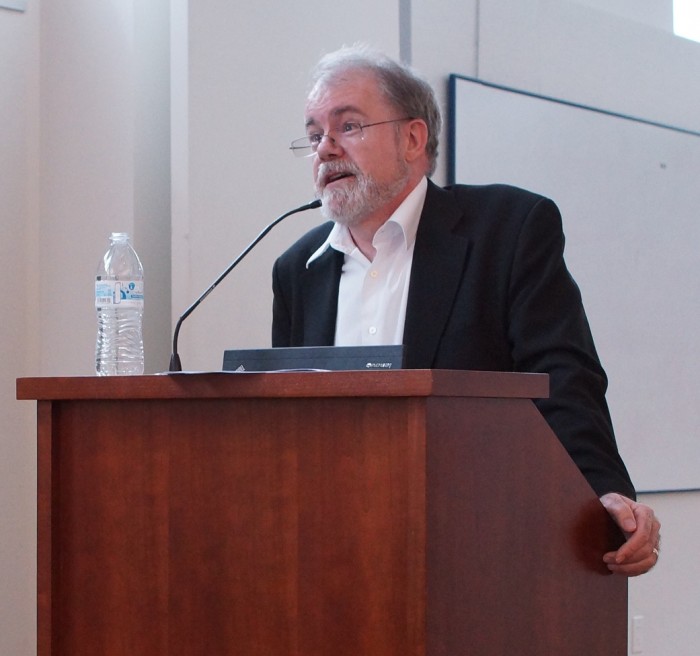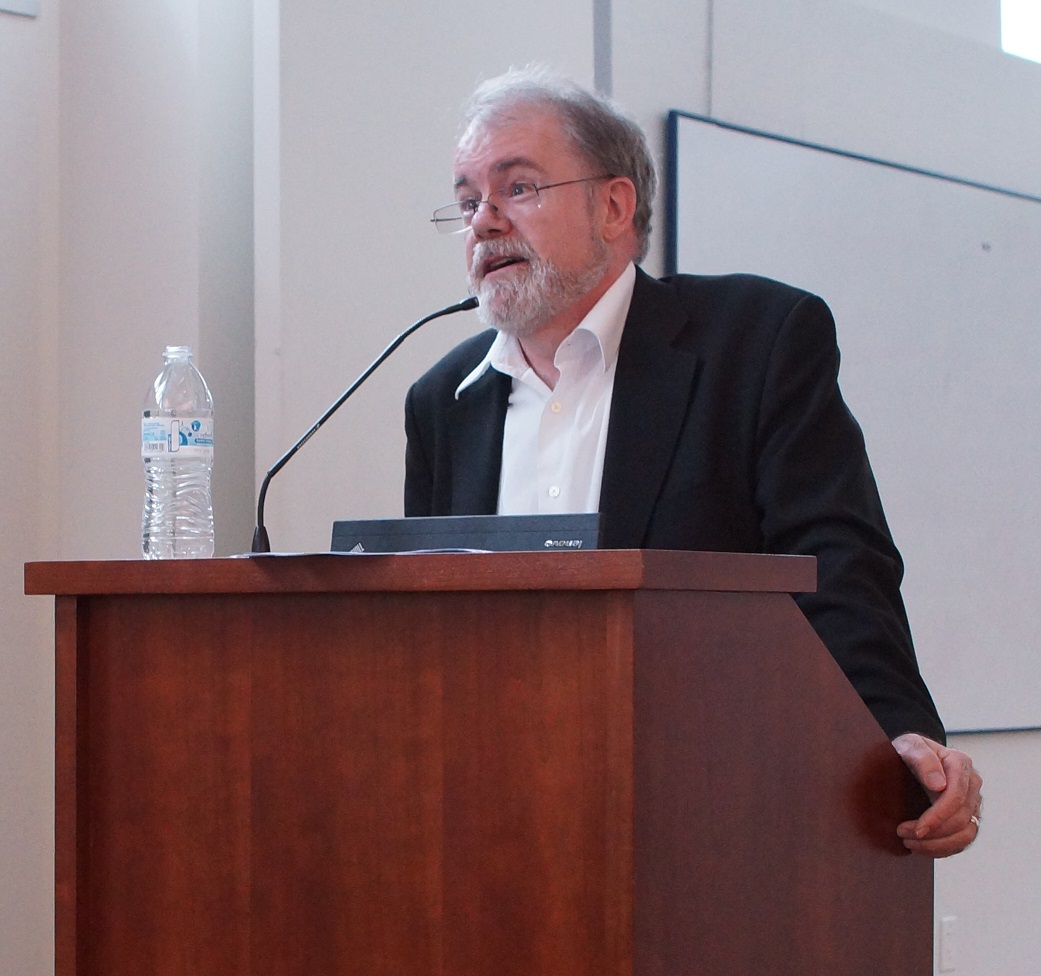By: Andrea Guzman, 3rd Year Media Studies and Political Science Major

April 18, 2014 – Renowned economist and New York University professor William Easterly addressed a packed audience at UC Berkeley’s Blum Center for Developing Economies to discuss his latest book, The Tyranny of Experts: Economists, Dictators, and the Forgotten Rights of the Poor.
Co-sponsored by the Blum Center and the Center for Effective Global Action (CEGA), the event drew more than 100 faculty and students. Easterly’s work and the issues he raises about foreign aid and global development are part of the introductory curriculum in the Blum Center’s Global Poverty and Practice Minor.
In his lecture, Easterly focused on the dangers of addressing global development with a solely technical approach and ignoring the role of politics and individual rights and freedoms.
Ted Miguel, Oxfam Professor of Environmental and Resource Economics at UC Berkeley and Faculty Director of CEGA, moderated the event. He began the event by introducing Easterly and some of his greatest works, noting Easterly’s unique ability to bridge the world of academia and public debate.
Easterly began the talk by criticizing technocratic approaches to development which seek to address poverty and development challenges through technical solutions. While development actors may have good intentions in doing so, Easterly argues that these efforts may have detrimental consequences as well.
“You get a long list of technical solutions, and you think that is development. That is the technocratic misconception,” Easterly said.
He gave the example of the World Bank, which has often provided economic aid without taking into consideration the government structures in place. This was exemplified in Uganda in 2010, when a World Bank loan aimed to convert a piece of land from fruit crop production to higher-value forestry. The project required the relocation of some villagers. However, because the villagers lacked political and economic rights and had no voice in the project, the relocation effort was ultimately botched, resulting in the villagers’ forceful removal, burning of their homes, and the death of a young boy.
“Clearly something has gone badly wrong here,” Easterly said. “What seemed like a straightforward technical solution was not a technical solution precisely because political and economic rights were not respected.”
Instead of pursuing strictly technical solutions, Easterly said we should consider the role of economic and political rights in development. Individual rights can create a problem-solving society that encourages development.
This transition will be difficult, however, because the technocratic methodology—which was a particularly convenient approach during the colonial era—has become entrenched. Easterly insisted that uprooting this approach is critical.
“Poverty is not about a shortage of experts, it is about a shortage of rights,” he pointed out.
Easterly does see an important role for continued research in public institutions like UC Berkeley, however. When asked by the audience about the role of engineering students in global poverty alleviation, he said that they can continue developing products that can later be used for achieving these types of rights.
“In a well-functioning political system that does gives political and economic rights, technology works marvels,” Easterly said. “You are part of the solution when you, as a free individual, are able to offer new choices to individuals in poor societies who didn’t have those technical choices before.”
Despite the many development challenges at hand, Easterly remains optimistic. Technologies can spread in spite of oppressive governments, most of which are becoming less oppressive with time.
“Freedom is spreading around the world, and so the future is bright with hope,” Easterly said.
Watch a recording of Bill Easterly’s lecture:
[su_youtube url=”https://www.youtube.com/watch?v=n9mN7fZ_GnY”]




